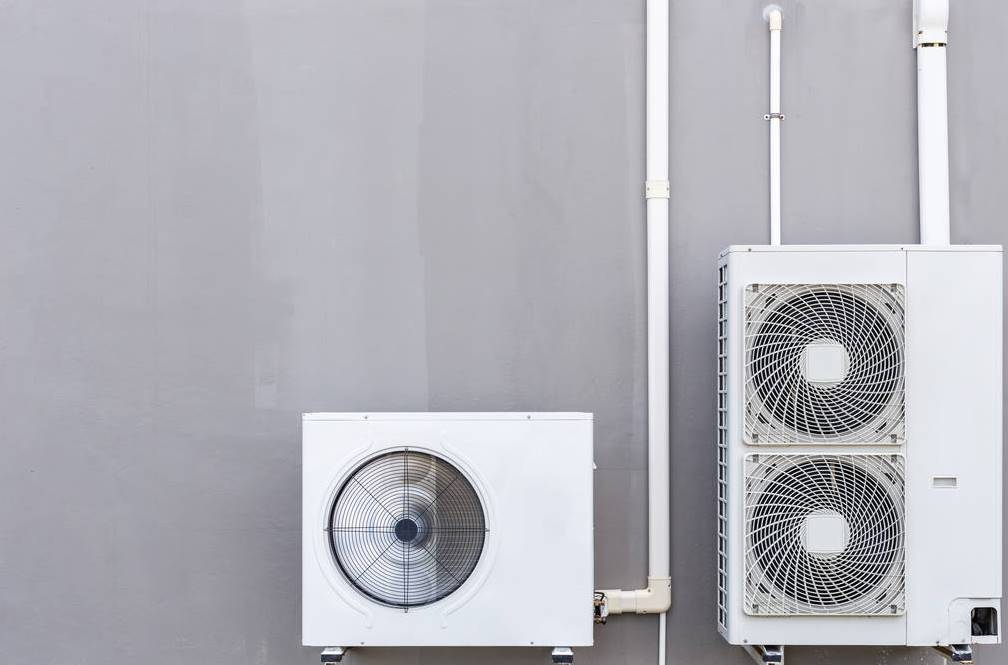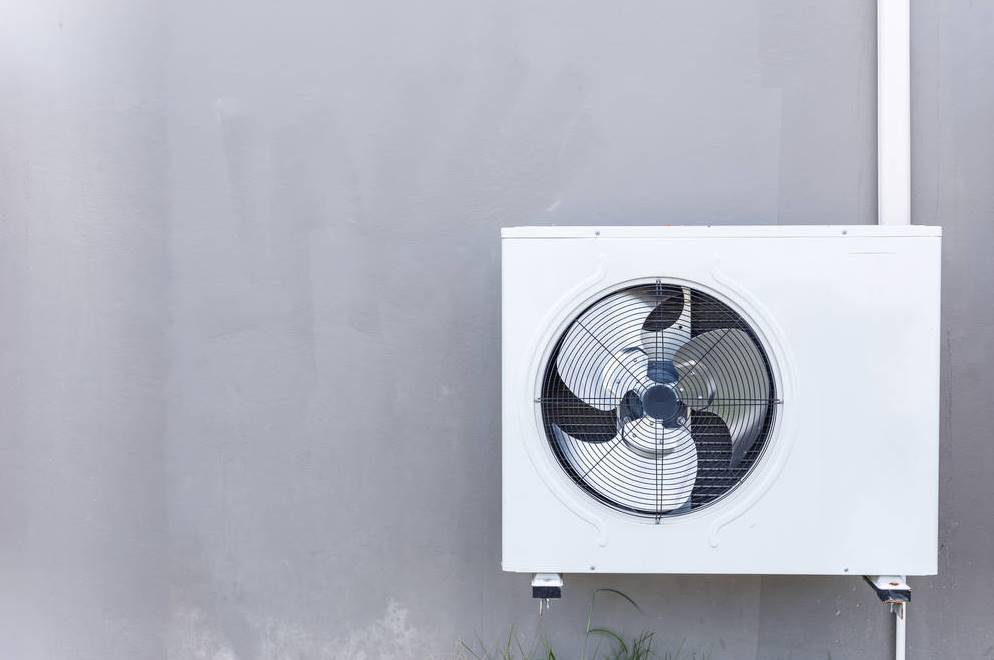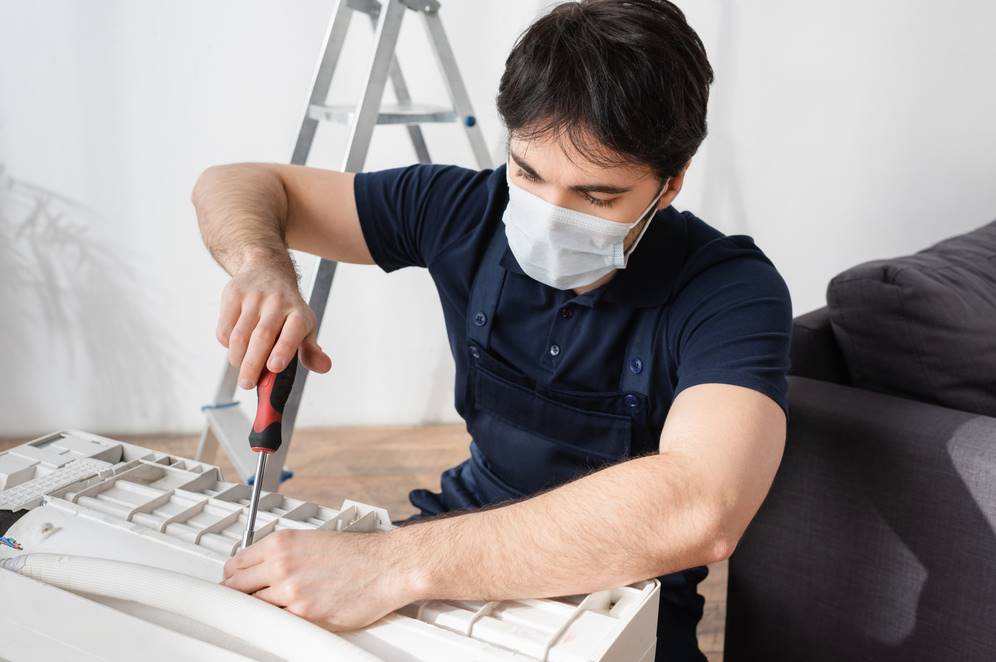While the upfront cost of a new HVAC system may seem daunting, consider it an investment in your home's future efficiency and comfort. Investing in a new HVAC system isn't a decision to be taken lightly; it requires research, consideration of efficiency standards, and an understanding of your personal home's heating and cooling requirements.
This post will give you the basics to buy a new HVAC system.
What Is an HVAC System?
"heating, ventilation, and air conditioning" (HVAC) describes the apparatus that controls the indoor climate. HVAC is a typical industry abbreviation. With the help of an HVAC system, building occupants can regulate the temperature of the indoor environment to their liking. Ductless air conditioners, heat pumps, central air conditioners, boilers, and furnaces are all frequent names for these systems.
Considerations for Buying a New Heating, Ventilating, and Air Conditioning Unit
When deciding on a heating, ventilation, and air conditioning (HVAC) system, it's vital to think about the following:
HVAC system efficiency
Choosing the most effective HVAC system is crucial if you want to reduce the amount you spend on utility bills each month. This is significant because high-efficiency HVAC systems provide considerably more affordable indoor comfort, which could save you and your family a lot of money.
Here are several ways to evaluate your HVAC system's energy efficiency:
- Air conditioner efficiency is measured by SEER. If the number is greater, your appliance uses less power. Interesting fact: the cooling efficiency of heat pumps and air conditioners is measured by the same SEER rating.
- Annual fuel utilisation efficiency (AFUE) is used to evaluate the effectiveness of heating systems. The greater the AFUE rating, the more efficient the unit.
- Heat pumps are assessed using HSPF, or heating seasonal performance factor. A high HSPF, usually 8.2 or higher, indicates a very efficient heating system.
Size of HVAC system
When deciding on an HVAC system, it's important to consider how big the unit should be. You must understand that when we talk about "sizing," we're not talking about the actual size of the apparatus. Understanding how much heating and cooling is needed is essential for choosing the right HVAC unit, which is what we mean when discussing sizing.
Sizing refers to determining one's heating and cooling requirements and purchasing accordingly. It usually depends on several things, the most important of which are:
- The size of the neighbourhood or apartment building
- Individual needs for temperature and other environmental conditions in a given place.
Selecting an HVAC system that is 'too' small may lead to discomfort due to insufficient heating and cooling output. This can lead to wasted energy, greater costs, and a decrease in your target temperature range.
An oversized system may produce too much heat or cold. There may be financial and environmental consequences as a result of this.
Types of HVAC Systems
Split systems, ductless systems, hybrid systems, and packaged systems are the four most common types of HVAC units. Consider your living situation and money before making a final decision.
Furnaces
Propane, Natural gas, and fuel oil furnaces are the most typical. Either a connection is made to the supply lines of a local utility company, or a fuel storage tank is installed and subsequently refilled at regular intervals by a fuel supplier.
Another common but more expensive option is electric heating systems. Electric current travels through heating elements, causing them to heat up and generate heat.
Air Conditioners
Central air conditioners are the norm in the HVAC system. These have a unit on the inside and one on the outside, with specialised parts. Power cords and refrigerant lines link the various modules.
These lines carry a refrigerant that can switch between a gaseous and a liquid state as required. The evaporator is the part of a refrigeration system where the liquid refrigerant is converted to a gas by absorbing heat. The condenser is where the refrigerant goes from gas to liquid again.
The heat is dissipated into the atmosphere as the refrigerant returns to a liquid state. The cycle then continues to maintain a comfortable indoor environment.
Split System
HVAC systems are usually "split" into two halves.
Hybrid System
The most notable upgrade from standard split systems is a hybrid electric heater system that significantly reduces energy use while maintaining comfortable temperatures.
Ductless System
Consisting of a heat pump and an outside air conditioner, it is designed to be utilised in homes without access to a normal duct system for cooling and heating.
Packaged System:
Provides efficient heating and cooling in a single package, typically installed outside in homes without basements.
Air-Source Heat Pumps
Heat pumps are similar to refrigerators in that they use a refrigerant process, but instead of cooling food, they transfer heat. When heated, exterior coils act as evaporators. The indoor coils become the evaporator and reverse refrigerant flow during cooling. The refrigerant is transformed into a gaseous state indoors, absorbing heat, and then pumped externally, where it undergoes a second phase transition, emitting heat. The process is reversed during heating operations, with heat being drawn in from the outdoors and distributed within.
Geothermal Heat Pumps
Like conventional heat pumps, geothermal heat pumps absorb and release heat from the soil or a body of water. The loop is a network of pipes submerged in water or buried at a constant temperature. The loop pipes carry water or antifreeze around the system. This approach stores heat during the winter and transfers it outdoors during the summer while bringing heat from the ground or water into the colder months. While the upfront investment for a geothermal model is typically higher, these systems are extremely energy efficient (heating and cooling) and built to last for decades.
Ductless Heat Pumps
To generate heating and cooling, ductless heat pumps, often called micro splits, use an external heat pump in conjunction with four or more internal air handling units. The indoor air distribution devices can be placed virtually anywhere without ducting. They are advantageous in the same ways as traditional heat pumps, with the added bonus of being portable.
Air Quality and Temperature
It's important to consider how different HVAC systems affect indoor temperature, energy usage, and air quality. Did you know incorporating UV lights into your HVAC system is one way to improve your building's rating from the EPA for indoor air quality? If you research, you can find the greatest HVAC system for drying the air out and lowering the particle count.
Capacity
The new HVAC system you choose should efficiently heat and cool your home. British thermal units (BTUs) are the standard for calculating an HVAC system's output. The higher the BTU rating, the more energy it may potentially heat.
Programmable Thermostat Compatibility
Verify that a contemporary programmable thermostat will work with the system you intend to purchase. Because of this, you can regulate your HVAC system from almost anywhere. Additionally, you can reduce your monthly energy costs by turning the systems on and off as needed. Your heating and cooling system will last longer as well. While older models need running wires to adjacent rooms, the newest models can be operated from anywhere with cell coverage using a smartphone.
Maintenance requirements
Maintenance is key to the continued efficiency of your HVAC system, so be sure to invest in one that requires minimal attention. Your installation price should include a service package that includes routine checks, discounts on repairs, and a warranty on the work performed.
Sound
HVAC systems can be noisy depending on type and location. Make sure the HVAC system you buy is appropriate for your home and your tolerance for noise by consulting a professional.
Price
If you want to spend extra money on an HVAC system, it's because you care about ensuring your home is always at a pleasant temperature. While price is a concern, other aspects, such as energy efficiency and durability, should be considered while shopping for an HVAC unit.
Remember that the money saved on energy and repairs by getting the right size and a better quality unit should go into any purchasing choice and that the cheapest option is not necessarily the best quality and rarely the most efficient.
Advice on Purchasing a Home Air Conditioning and Heating Unit
Finding the perfect heating and cooling system can be challenging without knowing what to look for and how to search. This article will provide helpful advice to make selecting a house HVAC system a breeze.
Always Look At The Reviews
Checking HVAC ratings is a good starting point when deciding which system is ideal for your home. The comfort level in your home heavily depends on how well-rated your HVAC system is. Some of the important star ratings are as follows.
Think About The Expenses In The Future
An HVAC system is an investment that should be considered in the long run. Therefore, this is essential to consider before selecting an HVAC system for your home. Most HVAC systems are more expensive up front, but they pay for themselves quickly through energy savings. High-efficiency HVAC equipment is highly recommended, although it can be fairly expensive.
Use The Services Of A Qualified Professional
Incorrect installation or a system that is too small for your needs are two of the most prevalent causes of energy waste in new heating, ventilation, and air conditioning (HVAC) units. This is why choosing a seasoned professional for HVAC selection and installation is so important. You will also require a qualified professional's assistance to help with your unit's ongoing maintenance.
When you hire a reputable provider, you can rest assured you have the right HVAC system for your home. A professional HVAC contractor can assist you in making the best decision for your home's climate control needs. It would help if you got a licenced HVAC technician on board before installing.
Conclusion
When choosing a house HVAC system, consider efficiency, size, and fuel efficiency. HVAC systems govern indoor climate and can be split, ductless, hybrid, or packaged. Energy efficiency is essential for low utility bills and cheap interior comfort. Efficiency measures include SEER, AFUE, and HSPF.
Sizing is also vital, considering building size and individual temperature and environmental needs. Oversized systems may overheat or cool, causing financial and environmental issues.
The four main HVAC systems are split, ductless, hybrid, and packaged. Central air conditioners have specialised parts, while furnaces are propane, natural gas, or fuel oil. Split systems have two sections, whereas hybrid electric heaters save energy while preserving comfort. For homes lacking ducts, ductless systems use a heat pump and an exterior air conditioner. Exterior-mounted packaged systems enable efficient heating and cooling in homes without basements.
Indoor heat is absorbed and released by air-source heat pumps during cooling. Geothermal heat pumps store soil or water heat in winter and release it in summer. They last decades and are energy-efficient. Micro splits, or ductless heat pumps, use an exterior heat pump and several interior air handling units.
When picking an HVAC system, consider air quality, capacity, programmable thermostat compatibility, maintenance, noise tolerance, and affordability. Cheap may not mean high-quality or efficient. Although pricey, high-efficiency HVAC equipment is suggested.
Compare ratings, costs, and expert services when buying a home HVAC system. Energy waste might result from improper installation or a too-small system. A licenced HVAC expert can help you choose the best home climate control option.
In conclusion, air quality, capacity, programmable thermostat compatibility, maintenance, noise tolerance, and price must be considered while choosing a residential HVAC system. By following these principles, you may choose the correct climate control for your home.
Content Summary
- The decision to purchase a new HVAC system is crucial to the effectiveness and convenience of your house.
- It's vital to have a solid foundational knowledge of HVAC systems before making a purchase.
- What we mean when we say "HVAC" is "heating, ventilation, and air conditioning."
- The installation of an HVAC system allows for the regulation of the indoor climate.
- Ductless ACs, heat pumps, central ACs, boilers, and furnaces are all examples of HVAC systems.
- To save money on heating and cooling costs, HVAC efficiency is critical.
- The SEER, AFUE, and HSPF ratings are all ways efficiency is quantified.
- To get the most out of your heating and cooling system, you need to have it properly sized.
- Dimensions and environmental controls in a building will determine what is required.
- Getting the size of your HVAC system wrong can cause all sorts of complications.
- The most common heating, ventilation, and air conditioning (HVAC) setups are the split, ductless, hybrid, and packaged varieties.
- Electric, propane, natural gas, and fuel oil furnaces are all viable choices.
- In most homes, the HVAC system consists of a central air conditioner.
- Commonly utilised systems are those that are split in two half.
- Heating efficiency is greatly improved with hybrid systems.
- Homes that don't have ducting can nevertheless benefit from ductless systems.
- Heating and cooling are provided through packaged systems.
- In order to control the temperature inside, heat pumps move heat from one set of coils to another.
- Geothermal heat pumps draw its heating energy from the earth, making them very efficient.
- Convenient and easy to move, ductless heat pumps have many uses.
- Think about how the HVAC system affects the indoor environment, energy consumption, and air quality.
- When added to HVAC systems, UV lights can significantly enhance the quality of indoor air.
- The BTU capacity of a home's heating and cooling system should be appropriate for the size of the home.
- Make sure your thermostat is compatible with programmable models to cut costs and improve comfort.
- The effectiveness of an HVAC system relies heavily on regular maintenance.
- When shopping for an HVAC system, it's important to consider the included services and warranty.
- When deciding on an HVAC unit, you should think about its noise output.
- While cost is important, it's also important to think about things like energy efficiency and longevity.
- Spending more money on a high-quality HVAC system is justified by the money saved on energy and maintenance.
- When looking for a new HVAC system, customer reviews and ratings can be quite helpful.
- In terms of efficiency and comfort, HVAC ratings matter.
- When considering an investment, think about the long run costs and energy savings.
- It's important to hire a trained expert to help with the HVAC system's selection, installation, and maintenance.
- Energy is wasted due to improper installation and undersized systems.
- A professional HVAC specialist can assist in selecting the most suitable climate control system.
- The installation and upkeep of your HVAC system should be handled by a qualified professional.
Frequently Asked Questions About HVAC Systems
HVAC system efficiency is crucial for reducing energy consumption and utility bills. It's measured using ratings like SEER for air conditioners, AFUE for heating systems, and HSPF for heat pumps. Higher ratings indicate more significant efficiency.
Sizing your HVAC system involves assessing factors such as the size of your home or space, local climate, and individual temperature preferences. Consulting with an HVAC professional can help you make the correct sizing decision.
Standard HVAC systems include split, ductless, hybrid, and packaged systems. They differ in installation, efficiency, and suitability for various home layouts and climates.
Regular maintenance ensures that your HVAC system operates efficiently, extends its lifespan, and prevents costly repairs. Maintenance packages often include routine checks, repair discounts, and warranties for peace of mind.
When selecting an HVAC contractor, look for licensing, experience, and customer reviews. A qualified professional can help you choose the right system, ensure proper installation, and provide ongoing maintenance to keep your HVAC system running smoothly.



